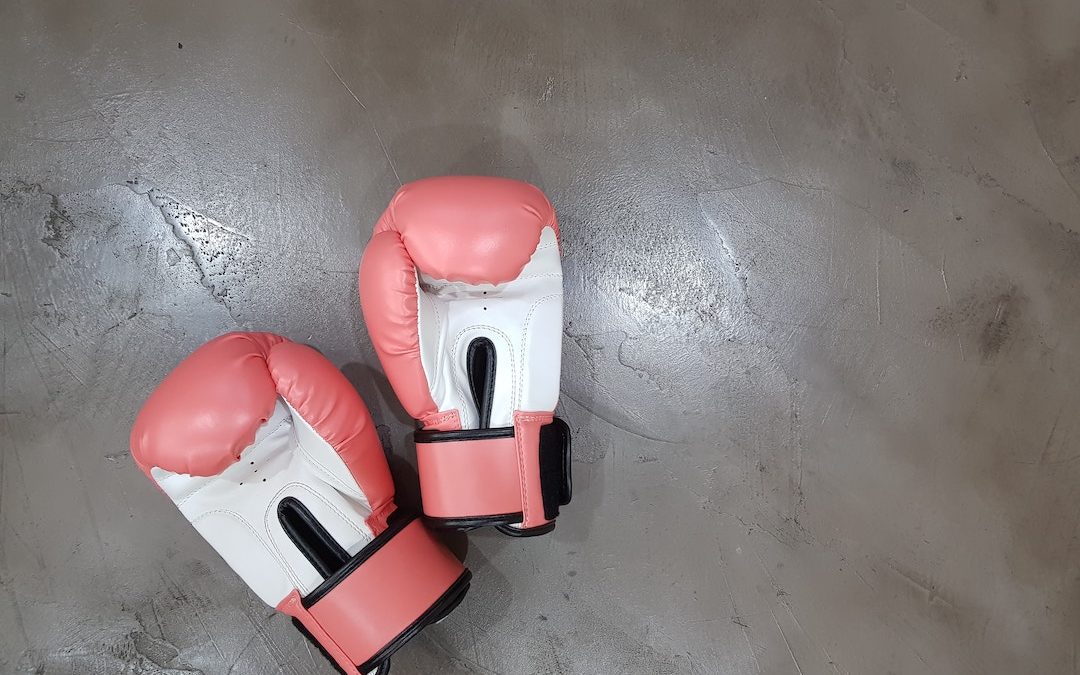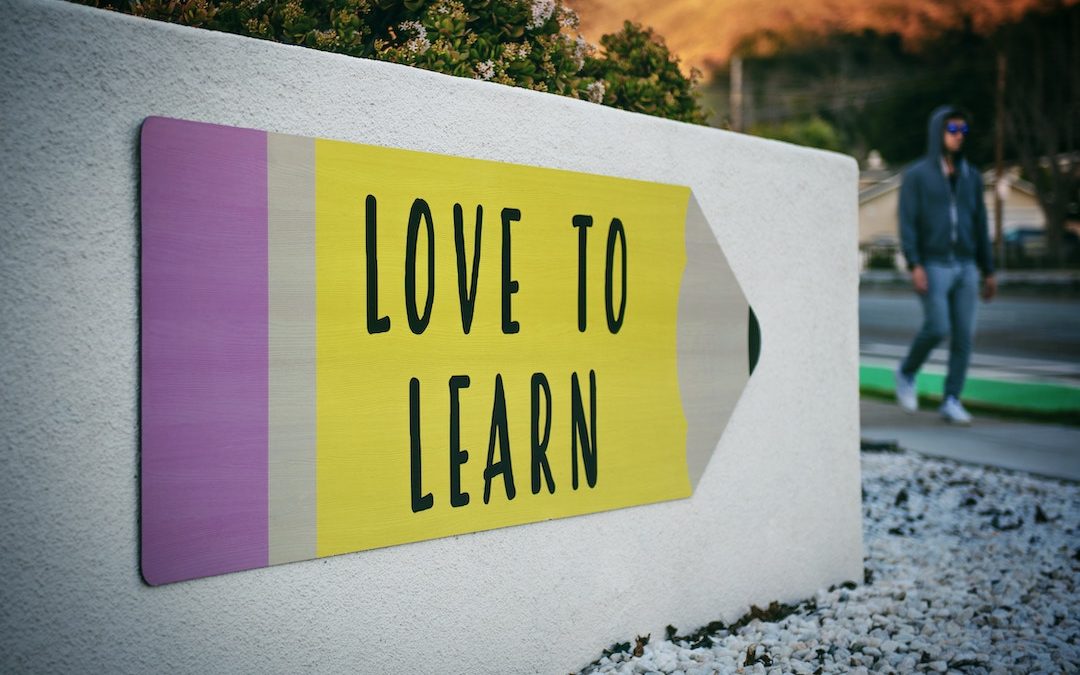
by Rachel Toalson | Books
Here are 5 (or 6) things worth sharing this month:
1. Reading: I recently finished the lovely middle grade novel, Ruby Lost and Found, by Christina Li. It’s about a girl who’s been sentenced by her parents to spend the summer with her grandmother, visiting a local senior center and interacting with her grandmother’s friends. After learning that a beloved bakery in the neighborhood is in trouble, she tries to brainstorm ways to save it. It was such a sweet story of family connection, coming of age, and learning to fight for a community. Highly recommended! Li is also the author of Clues to the Universe, which I have not yet read but, of course, plan to!
2. Reading: Another fantastic middle grade read this month was Gillian McDunn’s When Sea Becomes Sky. It was another summer story (I guess I’m only just getting around to reading them all) about a girl who learns her special place with her brother is going to be destroyed by development—and she tries to save it. Which makes it seem similar to Ruby Lost and Found, but it’s totally different. McDunn is probably best-known for her books Caterpillar Summer (which I also recommend reading) and Honestly Elliott, which I haven’t yet read.
3. Reading: “Mom likes to call them my ‘angels,’ but I worry that takes away their humanity and their nonreligious capacity for love and compassion they showed a stranger.” Javier Zamora’s memoir, Solito, is a sometimes disturbing portrait of his migration from El Salvador to the United States when he was 9. It was a riveting tale of survival and perseverance, made even more emotionally gripping because it was real. I highly recommend it.
4. Reading: I finished another fantastic middle grade this month—Jenn Reese’s A Game of Fox & Squirrels. It’s a magical realism book that confronts abuse in a very unique way. I found it captivating, touching, and…well, magical. I have not read any of Reese’s other books, which include Every Bird a Prince and Puzzleheart (which releases May 14, 2024), but one is currently in my holds stack at the library, and the other will be as soon as it’s released.
5. Watching: If you’re looking for a good drama (if your heart can handle anything other than comedy—and it’s a close call for me), look no farther than Apple TV’s The Morning Show. This show is a very candid look at what a modern early morning TV show workplace looks like. They take on modern-day issues—racial equity, political thought, and (whether you’re ready for it or not) life after Covid (Season 2 gets an up-close look at Covid). The show is currently in Season 3, and it’s been renewed for at least one more season. It’s well worth the watch!
6. Reading: “You fight and you fall and you get up and fight some more. But there will always come a day when you cannot fight another minute more.” Oh, what a disturbing—and yet somehow inspiring—book. Kate Moore’s The Radium Girls: The Dark Story of America’s Shining Women tells the true story of the hundreds of young women who worked in radium-dial factories and lived with the horrendous consequences—and what they did to battle for workers’ rights. It was fascinating, disturbing, and utterly riveting. A few months ago I shared another of Moore’s nonfiction books, The Woman They Could Not Silence. Do yourself a favor, and pick them both up. You’ll be captivated.

by Rachel Toalson | Wing Chair Musings
“Do you think it’s becoming a problem again?” he said.
No. But yes. Maybe. Probably. No.
Thus began my husband’s gentle reminder not to fall into my self-destructive patterns.
We celebrate twenty years of marriage this month. He’s known me more than half my life. There’s not much I can hide from him. It’s like having eyeballs on the inside, sorting through all your secrets.
He recognizes the signs when I start slipping back into disordered eating and getting tripped up by body dysmorphia.
My depression of late has felt a little…wild. Seasons come and seasons go, some longer than others. Some have deeper waters than others. Some spiral out of control.
When things are out of control, I spiral (just like the depression). When I spiral I grasp for control of anything and everything. Most things can’t be controlled, so they slide right through my hands.
Not everything slides, though. What I always convince myself I can control is diet and exercise. I’ll fast for longer, I tell myself. It’s a healthy form of eating, a buzz word in today’s culture (conveniently). I’ll exercise more. I’m doing something good for myself. I’m not doing anything wrong.
My eyes and heart and mind sweep right over the problem, pretending it doesn’t exist. And therein lies the problem.
I know where things can go from here. I’ve lived that story.
So maybe I acknowledge the problem and maybe I don’t, but the reality is, it’s always there, staring me right in the face. Reminding me that this is yet another personal failure.
What a dirty phrase: personal failure.
The people closest to me know I’m hard on myself. My self-talk isn’t always productive. I’m a hopeful person who avoids hoping for the good things I want and desire—because it’s easier and better for my heart not to be disappointed when those things don’t happen. I don’t always practice mercy on myself when I make a mistake.
Maybe this is why I’ve always loved the journals of Sylvia Plath. She was hard on herself, too. And her self-talk was unproductive a lot of the time. And she hoped only tentatively. Mercy was a foreign concept when applied to herself.
I’ve revisited these journals multiple times over the years, ever since my mom gifted me with them for Christmas when I was in high school. And in the last two years I’ve been revisiting them because I’ve been writing a biography in verse about her last years in high school and her years at Smith College in Massachusetts.
We’re so similar I almost feel like I’m writing about my own years of young adulthood. Up down up down moods, one moment feeling like I’m good at what I do, the next feeling like I’m quite possibly the worst writer who ever lived.
And then there are the mistakes.
I’ve made a lot of them in my life. I’ve tried to forget them as well as I can (but you never really do, do you?), because for a long time, it felt like my mistakes said something about me. They were personal failures. Evidence that I was broken. Incapable. Wrong.
Sometimes they still feel like that.
Viewing mistakes like this kept me—sometimes still keeps me—from examining my weaknesses. It keeps me ignoring my problems. Pretending they don’t exist but are simply things I can’t fix.
That doesn’t solve anything, though. As Margaret Haffernan, an entrepreneur in the UK, says, “You cannot fix a problem you refuse to acknowledge.”
We can’t fix problems we sweep under the bed, hide to our best ability, ignore like if we ignore them long enough they’ll go away. Problems are sticky. They hang around. And they don’t shrink, they grow when they don’t get the attention they think they deserve.
After my husband asked me that gentle, pointed question; after I saw that I was, indeed, headed toward that dangerous road again; after I metaphorically collapsed around another personal failure, another mistake, a voice came from somewhere down deep. Mistakes aren’t who you are, it said. The voice sounded just like me.
That’s because I’m constantly telling my kids this. Mistakes are just mistakes, I tell them. Opportunities to grow. They can be fixed. They aren’t who we are.
I hadn’t been listening to what I knew.
How can we fix something we refuse to see or acknowledge? We can’t. That goes for mistakes, and problems.
I’m still a work in progress. I’m still learning not to expect perfection in myself. Some days are better than others.
Problems aren’t fixed once and for all. Like anything else, they require a journey. Some problems may take our whole lifetimes to solve. We may slip and slide backward and forward along the path of recovery and healing.
But here’s what we can know, too: We’re stronger than we know. We are capable of great things. We can face any riptide that comes.
And maybe that’s the part that matters most.
Have a glorious month of seeing with wide-open eyes and realizing your inner strength.
Here are some suggestions for rooting out problems from their hiding places:
1. Identify.
Finding problem areas we’ve ignored or hidden or shoved under our bed can seem like a monumental task. But it’s the first step in the process of fixing those problems. So we need to pull everything out, dust off the boxes, shake out the rugs, and brave the spiders that may have nested while we were so busy trying to ignore them.
I might have taken that metaphor too far. Forgive me.
If you need a place to start, try your frequent frustrations. Our frustrations can tell us a lot about our problem areas. One of mine (simpler than the one mentioned above)? Clothes left on the floor! This is both my children’s problem and mine. They should pick up their clothes, I should stop pining after a perfectly tidy house and remember that living with people means accommodating their personalities and tendencies (while still communicating my own needs for a mostly-tidy house). Compromise is the language of roommates—and families.
2. Acknowledge.
I’ve found in my life that some of the most powerful words we can say are, “I acknowledge this is a problem.” It brings with it a great relief—sometimes to the person pointing out one of our problem areas, sometimes just to ourselves when we’ve ignored a problem for so long it also, ironically, seems to be the only thing we think about in the backs of our minds. (Who knows how that’s possible, but it is.)
3. Make a plan.
This is probably my favorite part of the process. I don’t necessarily relish identifying or acknowledging problem areas, but I am all about the plan. I will plan in minute detail. Meal plans that will make sure I’m eating. Fitness plans that will protect me from taking my workouts to an extreme. Therapy plans that get me the psychological care I need.
Make a plan to address and fix your problem(s), one step at a time. And remember it won’t be solved all at once. You’re a work in progress. We all are. So let’s be gentle on ourselves and practice a little mercy.
I’ll be attempting to do the same.

by Rachel Toalson | This Writer Life
Some creative people think that creativity only happens when the “muse” strikes.
That always sounded strange to me. Who was the muse? Am I not my own muse? In charge of my own creativity? If I had to depend on some nameless, invisible muse, who may or may not show up when I had some extra time to write, how would I ever get anything done?
It all sounded very unpredictable. And I don’t like unpredictable (in case you haven’t already figured that out).
So I probably don’t even need to tell you that I don’t subscribe to this belief.
What I do, instead, is train like a writing athlete.
I can hear the groans already. Training? Athlete? We became writers so we didn’t have to expend that much energy.
While it is some work to train like a writing athlete, I promise it’s not as much physical as it is mental.
And if you’re the kind of creative person who prefers waiting for inspiration to strike, then the following tips can help lay out the red carpet for the muse.
1. Be consistent.
I know it’s not always easy being consistent. I have six kids. This summer was a flurry of pediatrician well checks and eye doctor appointments and dentist appointments—and that’s just the scheduled extras. There are so many variables with six kids. Someone forgot to tell me about drama practice, someone missed the morning bus, someone got sick, someone decided he didn’t like carrots anymore.
But still, if all else fails, I try to squeeze in at least fifteen minutes to half an hour of writing time every day. I’d prefer more, sure, but the consistency is what’s important.
Consistency leads to necessary gains. Just like my consistent training makes me a better, stronger runner, so consistent training (or practice) makes us better, stronger writers.
Build your process. Experiment with what works for you. We’re all different. Don’t worry about how fast or slow you write. Focus on the best training schedule for you.
2. Don’t be afraid to add variety.
When we’re not training in our one specific fitness area (such as running), we think it hinders progress. I believed this for a long time—until I injured myself and had to take some time off, which is actually what hindered my progress. I spent that time off strength training, adding pilates and yoga to my regular workout rotation, and rowing. I came back a much stronger runner than I was before.
Writing, too, needs variety. Writing different forms in different genres, for different age groups—even if it’s just for fun and never goes beyond a very short story on our hard drive—challenges and stretches us as writers. Adding variety into our regular writing routine can strengthen our main discipline. If we write novels and change it up by writing short stories, we’ll likely write better novels. If we write essays and change it up to write some poetry, we’ll come back to the discipline we love much stronger.
In the same way, adding a variety of creative disciplines into our regular routine can make us better at our main creative discipline. Do other creative things that don’t seem to have anything to do with writing. Compose some songs, draw some pictures, pick up an instrument, dance like no one’s watching. Creativity enhances creativity.
3. Rest and recovery are just as important as the discipline of work.
You know where fitness gains really happen? In the rest after putting in the work. Muscles repair themselves and get stronger. Lungs expand and improve their capacity.
I like to think the same is true in writing. The brain keeps working even when we take time off. The subconscious mind works while we’re unaware of it.
So take a day or two or a whole week off. Spend the time doing other creative things or nothing at all. Let your brain rest. It will likely keep working for you—but will appreciate the rest all the same.
I hope you have a joyous month of consistency, variety, and rest.

by Rachel Toalson | Books
Here are six things worth sharing this month:
1. Reading: “I think standing up for yourself always makes a difference.” I just finished reading Ali Standish’s latest middle grade book, The Mending Summer. It was lovely and hard and sweet and infused with magic and love. It’s about a girl dealing with alcohol addiction in her family, and I found it an authentic picture of what it’s like living with addiction under your roof. Standish is the author of multiple books; two of my other favorites include The Ethan I Was Before and August Isle. I highly recommend them all!
2. Reading: “Let everything happen to you: beauty and terror. Just keep going. No feeling is final.” You Could Make This Place Beautiful, by poet Maggie Smith, is a memoir of divorce. And oh my goodness is it beautiful. I didn’t expect to love this as much as I did, since I’ve never been through a divorce. But as a child of divorce, I felt like it was something my mom could have written. It was just…lovely. You must do yourself a favor and read it. Smith is the author of numerous poetry books, including Goldenrod and Good Bones, which are both on my reading list now.
3. Watching: If you have not yet seen the Barbie movie, you must! My husband and I saw it in the theater together, and then we took our three older boys to a second showing. I loved it even more the second time, and my sons loved it, too. When we walked out of the theater that day, a young girl was crying and told her mother, “I loved that movie so much!” It was such a sweet moment, and my 14-year-old couldn’t stop talking about how much it meant for that girl and so many others. Anyway. End of gushing. Just go see it. (You can also watch my YouTube review of it—but beware, it has slight spoilers!)
4. Reading: One of my favorite summer middle grade reads was Lasagna Means I Love You, by Kate O’Shaughnessy. It’s about Mo, who’s just lost her grandmother and who is now in the foster system. Mo writes to her grandmother in letter format…and it will not take you long at all to absolutely love this girl, who is desperately longing for a family to call her own. O’Shaughnessy is also the author of The Lonely Heart of Maybelle Lane, which I have not yet read but will soon!
5. Reading: I just subscribed to Ms. Magazine. I’m not sure why I never thought to subscribe before! The magazine is celebrating 50 years, and it’s a treasure trove of statistics on equality/inequality, political needs, and women’s issues. I look forward to seeing it in my mailbox every quarter! The Ms. web site is also a wealth of information…I’ve found myself getting caught in black holes of research there!
6. Reading: “Here’s a theory: Maybe I had not really been broken this whole time. Maybe I had been a human—flawed and still growing but full of light nonetheless.” Another phenomenal memoir I read this month is Stephanie Foo’s What My Bones Know. It’s a memoir of trauma. It was eye opening and challenging and ultimately hopeful. I read the audiobook, but I had to get the hard copy so I could read it again and make notes and study it, because it’s full of helpful research. I felt such a connection to this memoir, because for the first time it put words to some of the trauma I’ve experienced in my life—and the long, difficult road to healing.

by Rachel Toalson | Wing Chair Musings
I have always loved learning.
When I was four, my family lived right across the street from the red-roofed elementary school where I watched my brother get swallowed by the white doors every morning. I couldn’t understand why he got to go to kindergarten and I didn’t. Who cared about being five? They should let anybody in who wanted to learn!
I made my brother teach me what he’d learned as soon as he came back home. So I learned to read right alongside him—and oh, what a world I discovered when I picked up books!
My love of learning continued all through middle school and high school. I set my sights on college—because I didn’t want to stop learning. And even though I did not come from a family of college graduates or even a family that could afford college, I worked hard for that dream.
An even bigger world opened up for me in college. I’d grown up in a small town. College exposed me to different people and different viewpoints and the amazing (and sometimes scary) reality that I hardly knew anything—and nothing for certain.
It was both a humbling and an exciting revelation. Humbling because it’s always a little jarring when you’re faced with how little you actually know. And exciting because it meant I could forge within myself a space for constant growth and learning. I could entertain my wonder. I could explore my uncertainties.
Maybe we don’t always like asking questions out loud, where people can hear, where our ignorance feels like it’s on display. People aren’t always kind and patient with our questions. Sometimes it feels like we live in a world where everybody knows the for-sure answer except for us.
But a question I’ve always asked myself is, What if there are no for-sure answers? And another: What if those of us who pretend to be so certain (and make no mistake—I pretend sometimes, too) are really some of the most uncertain people among us?
Can we know anything for certain?
I’m not talking about our convictions, where we take a hard stance and are unwilling to compromise. My 14-year-old pointed out one of mine the other day. He said, “You know, you’re really open-minded about a lot of things, but when it comes to food and healthy eating, you’re, like, unbendable.”
I made some joke and then followed it up with something like, “I’m unbendable because it’s one of the things that are important to me. Like climate change. And women’s rights. And a lot of other social issues.”
It’s good to have those convictions and hard stances. But even within those, we have to be willing to learn more. I have rigid rules about the food in our house being healthy and mostly plants. It doesn’t mean I’m not open to hearing new information about nutrition. In fact, I actively seek out new information and have since I studied nutrition in college. Science changes. I change with it when I need to.
Being rigid about our convictions doesn’t have to mean we’re closed-minded.
When we remain open-minded, we allow ourselves to consider and accept new information. We seek to clarify. We ask important questions without fear. We wonder. And along the way, we learn that the more we learn the less we actually know.
Which is why it’s important to embrace an attitude of learning.
I love what William Least Heat-Moon, an American writer and historian, said: “Maybe the only gift is a chance to inquire, to know nothing for certain. An inheritance of wonder and nothing more.”
And Octavia Butler, another American writer, says, “I don’t know very much. None of us knows very much. But we can all learn more.”
Failure is a good learning opportunity. So is struggle. And joy. And disappointment. And hurt. And…
You get it. Life is a learning opportunity. But we must remain open to learn from it. We can spend our whole lives just existing. Going through the motions. Making the same mistakes again and again and never even noticing room for improvement.
I want to learn as much as I can about the world and its people and history and the present and the imagined future. I want to learn how I fit into the fabric of that past and present and future. I want to learn what I can do to make it a more beautiful place for everyone.
Wonder is good at doing that.
Have a beautiful month full of wonder, new ideas, and learning opportunities.
Here are my favorite ways to learn from life:
1. Let yourself feel what you feel. Then learn.
When my sons are flooded with emotions after an altercation or a disappointment or an experience that upset them in some way, there is no room for immediate learning. When the body and brain are flooded with emotions, that’s all we can consider. We don’t have capacity for learning.
So I have to wait until the strong feelings pass to talk to them and teach.
It’s the same in our own lives. When an experience leaves us flooded with an emotion—fear or hurt or embarrassment at misspeaking, we aren’t ready for learning. But feelings pass. So when the emotions have calmed, we can consider what we might learn from our experience. (And guess what’s great at helping us learn? Journaling!)
2. Read widely.
As if I really need to tell you this. But I often remind my kids: the more you read, the more you know. Maybe you won’t know everything and maybe you won’t know anything for certain (still), but reading exposes you to a wealth of information. Books, magazines, newspapers, comic strips, anything you can get your hands on—read it! When you read about the experiences from the viewpoints of other people, especially people who are different from you, it will open your mind to new information. What an exciting possibility!
3. Listen to other people.
Reading is a form of “listening” to other people. But listen, too, to the people around you. Seek out other viewpoints. Try to understand those who differ from you (this is work I’m trying to do as well…and it has been some of the hardest work I’ve done in my life).
When I was a journalist, I had to interview all kinds of people. People whose beliefs made me bristle. (Once I had to report on a KKK rally in Austin. It was very difficult to stomach.) People whose stories opened my eyes to new ways of thinking and being. People who challenged me and angered me and delighted me and frustrated me. And at the end of the day I had to write a balanced story as though I was an objective observer of life, not an opinionated participant in it. It was good practice for the listening I’d need to do to maintain an attitude of learning.
Listen without judgment. Absorb people’s stories and knowledge. Weigh them against your own. Think for yourself, but don’t think in a vacuum.
Before every encounter with a person (especially the difficult ones) ask yourself, what might I learn from them?
It’s a question that can change the world, I think.






